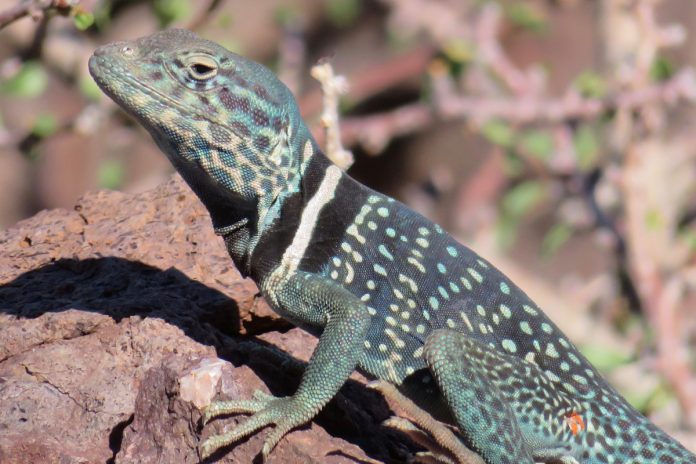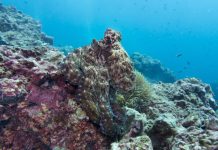Thomas L. Fleischner, Ph. D, Executive Director of the Natural History Institute discusses the critical importance of direct engagement with the natural world
Most major leaps in understanding the complex workings of the natural world have been discerned by naturalists, in the field, engaged in careful observation of plants, animals, and their interactions in natural settings. Experimental manipulations, laboratory-based inquiries, and theoretical models often yield exciting and important information. But frequently, such studies represent attempts to sharpen insights that came initially from the direct observation and description at the core of natural history – “the practice of intentional, focused attentiveness to the more-than-human world, guided by honesty and accuracy.“
The unifying theory of modern biological science – evolution through natural selection – was famously developed independently by two astute field naturalists, Charles Darwin and Alfred Russel Wallace. Only direct field study of real organisms in real landscapes offered a clear enough view of the phenomena of nature for this unifying theory to be revealed. As the renowned ecologist, Paul Dayton has noted: “There is simply no substitute for actually experiencing nature, to see, smell, and listen to the integrated pattern that nature offers an open mind.”
Today, in the grip of climate change and the sixth mass extinction, our need for understanding how nature works is more urgent than ever. But the startling fact is that fewer and fewer biologists have the opportunity to develop the skills of field biology and natural history. Over the past few decades, academic field studies have diminished on both sides of the Atlantic, as institutions and funding agencies have privileged theory over empirical field studies.
The American conservationist Aldo Leopold lamented the loss of field studies in biology education more than 70 years ago – and the situation has only grown more critical. Biologists with the skills to identify plants and animals have become the exception rather than the rule. How can we recognise human impacts on biodiversity if we can’t recognise the species that comprise it?
I’ve had the honour of directing a working group – representing a broad diversity of academic institutions and other NGOs – focused on the decline of field studies in biology education. This project was supported by the U.S. National Science Foundation and coordinated through the Natural History Institute.
The benefits of study
The value of field study is vast: field experiences not only contribute to better science, but also create better scientists, citizens, and people, thereby substantially affecting the human-nature relationships that form the basis for sustainability.
Observing nature is the touchstone for understanding how life works, and thus field studies serve quite literally as the grounding for the biological sciences. At the same time, field experiences often force observers to question and to re-evaluate their assumptions about how the natural world operates.
Accordingly, field observations can lead to re-calibration of research strategies for exploring biological phenomena, explanations for which are often subsequently tested using information collected by observational approaches in the field. Field observations reveal patterns, and these often lead to the development of formal hypotheses. Theoretical models are only as solid as the field natural history foundations on which they rest.
Field-based education is particularly critical to the biological sciences, providing fundamental training for key disciplines such as behaviour, ecology, evolution, systematics, and conservation science. Field studies underlie the conceptual and technical bases for these disciplines and are required to ensure their healthy growth.
Now, as society struggles to respond appropriately to losses of biodiversity, range shifts due to climate change, and emergence of new human pathogens, the decline in opportunities for field study means that subsequent generations of biologists will be increasingly divorced from the primary setting – the natural environment – in which the phenomena that they study occur.
As the capacity to modify biological systems expands – from genomes to ecosystems to global cycles – it is imperative that scientists and the broader public can critically evaluate the outcomes of these changes in the context of complex natural settings. Within academia, this need also applies to the educators charged with training future generations of problem solvers. Field studies are an essential component of every scientist’s training.
Field education also promotes the development of place-based understanding. Students who engage in field experiences have greater opportunity to cultivate the critical connections to real places that transform abstract concepts into tangible realities. This outcome extends to the cultural, social, and political settings in which field studies occur. A sense of place can be a powerful motivator for learning and stewardship and thus individuals who become strongly connected to a specific setting, tend to become more effective advocates for all elements of that environment.
On an individual level, field studies often spark a “sense of wonder” that can launch students on a path of discovery-based science, resulting in a life-long commitment to careers in natural, environmental, and medical science. Field experiences – in particular, residential and other immersive experiences – also provide unparalleled opportunities for development of intra- and inter-personal skills that are critical to effective leadership. There is also empirical evidence that field courses contribute to improved academic performance and cognitive learning in undergraduate biology students.
Challenges to study
Higher education has changed dramatically since Aldo Leopold wrote about the importance of field studies in the 1930s. Institutional challenges to field studies include decreasing financial resources and increasing regulatory concerns. Institutions, presuming high costs, fearing legal liability issues, too often construct administrative obstacles to faculty offering field experiences for students.
Accommodating study
Collectively, these factors contribute to a significant decline in field study opportunities for students and lack of pedagogical guidance for instructors interested in conducting field courses. At many institutions, instructors interested in providing field experiences must negotiate a complex suite of financial, logistical, legal, and attitudinal hurdles.
Sometimes, something as simple as the lack of a vehicle for transporting students is what denies them field study opportunities. Over time, these hurdles may sap the energy and morale of even the most dedicated instructors, thereby reinforcing the cycle of decline for courses that include a field component.
More than ever, the world needs the passion, insight, and wisdom that come from field studies. Academic institutions must recognise that field experiences are more crucial, not less, in the 21st century, and work to encourage, rather than obstruct field education. Funding agencies have an important role to play in supporting this critical foundation of learning how nature works.
Please note: this is a commercial profile
Thomas L. Fleischner, Ph. D
Executive Director
Natural History Institute
126 N. Marina St.
Prescott, Arizona 86301 USA
(Faculty Emeritus, Prescott College)











